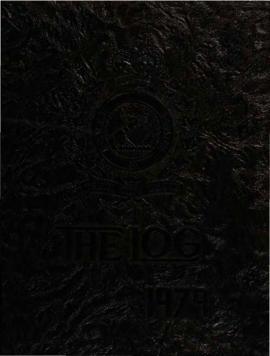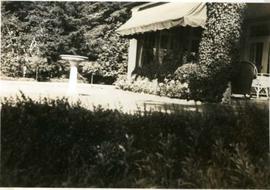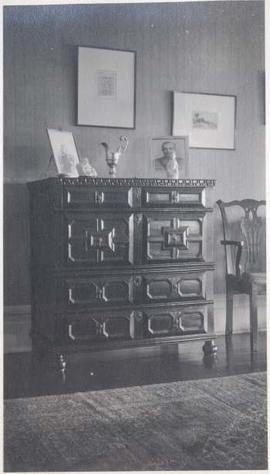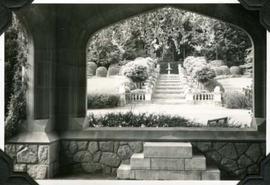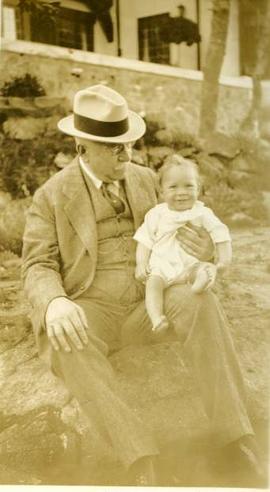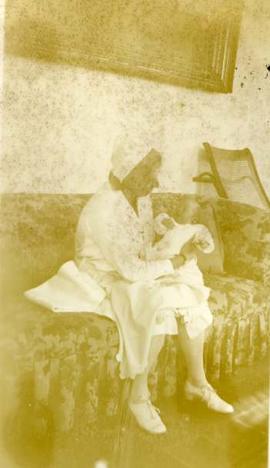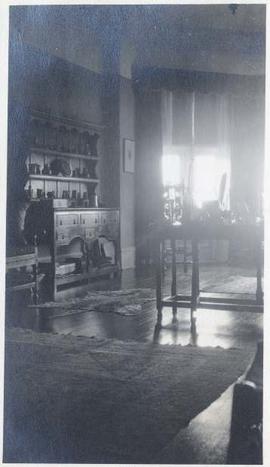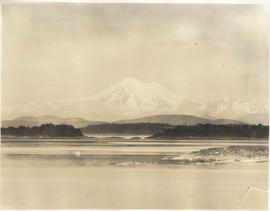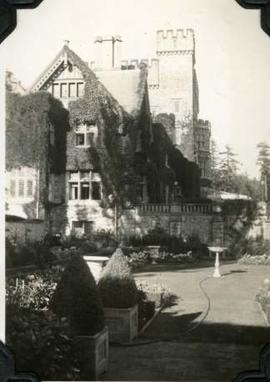This album is a series of photographs taken of military officer cadets at Royal Roads Military College in Victoria, BC, Canada. From arrival in the fall until graduation in late spring, this 1978-79 album tells the story of the academic year in photographs.
Includes the events at the college for 1958-1959.
Includes the events at the college for 1967-68.
Includes the events at the college for 1978-79.
9 pages bound with a cardboard spine and metal prong fastener.
1 board.
Program of events for morning convocation, where degrees were presented for the Master of Arts in Knowledge Management, Master of Arts in Environment and Management, Master of Science in Environment and Management, Bachelor of Science in Environmental Science, Master of Business Administration, Bachelor of Commerce, Graduate Diploma in Knowledge Management, Graduate Certificate in Knowledge Management, and Graduate Certificate in Environmental Education and Communication programs.
In 1928, Muriel Dunsmuir married Maurice “Tolly” Wingfield and by 1932, they had built Journey’s End, a home adjacent to the Hatley Park property and in the Arts and Crafts style. In 1952, it was used as a staff residence for Canadian Services College Royal Roads and since 1988, it has been the administration building for Fort Rodd Hill National Historic Park.
Hatley Castle was designed by renowned British Columbia architect Samuel Maclure for James Dunsmuir. Using only the finest materials, builders, stonemasons and detail carpenters only took 18 months to construct the building from 1908 until 1910.
This image shows a chest of drawers from the third floor bedroom in the central tower of the castle. On the drawers is a portrait of James Dunsmuir Jr. in military uniform and a picture of Laura Dunsmuir. The room was used by Elinor Dunsmuir in the 1930s.
The Neptune Steps and Fountain Court to the north of the castle were added as part of extensive development of the Hatley Park estate by Boston based landscape architects, Brett and Hall from 1912-1914.
When Laura Dunsmuir died in 1937, the house and grounds were maintained by a skeleton staff until it was sold to the Canadian Government in 1940.
The house was built in 1899 by Samuel Maclure for Col. J. Peters.
The Neptune Steps and Fountain Court to the north of the castle were added as part of extensive development of the Hatley Park estate by Boston based landscape architects, Brett and Hall from 1912-1914.
When Laura Dunsmuir died in 1937, the house and grounds were maintained by a skeleton staff until it was sold to the Canadian Government in 1940.
Hatley Castle was designed by renowned British Columbia architect Samuel Maclure for James Dunsmuir. Using only the finest materials, builders, stonemasons and detail carpenters only took 18 months to construct the building from 1908 until 1910.
This image of a room inside Hatley Castle is likely the bedroom suite on the third floor of the central tower. Initially intended for James Dunsmuir Jr., this large suite was inhabited by Elinor Dunsmuir in the 1930s.
L to R: unknown, Eileen Molyneux, Muriel Dunsmuir
Hatley Castle was designed by renowned British Columbia architect Samuel Maclure for James Dunsmuir. Using only the finest materials, builders, stonemasons and detail carpenters only took 18 months to construct the building from 1908 until 1910.
The Italian garden to the west of the castle and the croquet lawn below was added as part of extensive development of the Hatley Park estate by Boston based landscape architects, Brett and Hall from 1912-1914.
When Laura Dunsmuir died in 1937, the house and grounds were maintained by a skeleton staff until it was sold to the Canadian Government in 1940.
The man and woman, likely Dunsmuir staff, are pushing a wheelchair occupied by Arthur Selden Humphreys (see image 83).
L to R: Kathleen, Laura, Marion, James, Kathleen



